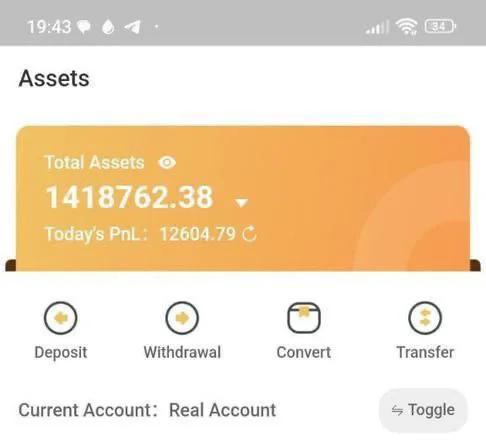Is CBEX Returning Investors’ Money? Here’s What You Need to Know

In April 2025, the collapse of Crypto Bridge Exchange (CBEX), a digital investment platform promising astronomical returns, sent shockwaves through Nigeria and beyond. With millions of dollars in investor funds trapped and no clear path to recovery, the situation remains fraught with uncertainty. The Economic and Financial Crimes Commission (EFCC) has pledged to recover the lost funds, but as of April 24, 2025, no refunds have been confirmed. Here’s a comprehensive look at the CBEX saga, the status of investor money, and critical advice for those affected.
The Rise and Fall of CBEX
CBEX, operating under aliases such as ST Technologies International Ltd and Smart Treasure/Super Technology, marketed itself as a legitimate investment platform, luring investors with promises of 100% returns within 30 days. The platform gained traction in Nigeria, particularly in cities like Lagos, Ibadan, and Abuja, and even attracted some investors from Kenya. Its slick marketing, fake certifications, and claims of ties to the China Beijing Equity Exchange gave it an air of credibility.
However, CBEX was a classic Ponzi scheme. On April 14, 2025, the platform abruptly collapsed, leaving investors unable to access their funds. Nigeria’s Securities and Exchange Commission (SEC) quickly confirmed that CBEX was unregistered and operating illegally. Estimates of losses vary widely, with credible reports citing $6.1 million in actual deposits, while exaggerated claims on social media suggest losses as high as ₦1.3 trillion (approximately $840 million). The true scale remains unclear, but the impact on ordinary Nigerians, including high-profile figures like Fuji musician Taye Currency, who reportedly lost ₦10 million, is undeniable.
EFCC’s Response and Recovery Promises
The EFCC has taken a proactive stance, assuring investors that their money will be recovered. EFCC spokesperson Dele Oyewale emphasized the agency’s collaboration with Interpol and other international bodies to track the perpetrators, believed to be part of a Southeast Asia-based crypto crime ring. “The EFCC is working to ensure that investors do not lose their money,” Oyewale stated, though he cautioned that the process may not be immediate due to the complexity of the case.
Despite these assurances, no concrete timeline for refunds has been provided, and no funds have been returned as of April 24, 2025. The EFCC’s prior profiling of CBEX as a potential Ponzi scheme before its collapse highlights the challenges of preempting such frauds, especially in a digital and international context.
CBEX’s Deceptive Tactics Post-Collapse
In a brazen move, CBEX attempted to exploit desperate investors even after its collapse. The platform sent messages requesting “verification fees” — such as $200 for a $2,000 investment or $100 for $1,000 — to unlock supposed insurance compensation. These messages falsely claimed EFCC endorsement, prompting swift warnings from the agency and the SEC. Financial authorities have labeled these requests as a secondary scam designed to extract more money from victims.
CBEX’s fraudulent credentials further underscore its deceit. The platform flaunted a fake US Financial Crimes Enforcement Network (FinCEN) registration and misrepresented itself as affiliated with legitimate financial institutions. These tactics, combined with aggressive social media promotion, enabled CBEX to amass significant funds before vanishing.
Investor Fallout and Public Reaction
The collapse sparked widespread outrage. Frustrated investors stormed CB suomalaisiaex offices in Lagos, Ibadan, and Abuja, with some resorting to looting furniture and equipment in a bid to recoup losses. Social media platforms, particularly X, buzz with a mix of anger, skepticism, and cautious optimism. Some users share EFCC updates, expressing hope for recovery, while others dismiss CBEX as an obvious scam that preyed on economic desperation and greed.
Posts on X also highlight the broader societal impact. One user noted, “CBEX thrived because people are desperate for quick money in tough times.” Another warned, “If it sounds too good to be true, it probably is. Check SEC registration first.” These sentiments echo the warnings of financial consultants who attribute the scheme’s success to economic hardship and a lack of financial literacy.
Regulatory Framework and SEC’s Role
The SEC has been unequivocal in its stance: CBEX was never licensed to operate in Nigeria. Under the Investment and Securities Act 2025, the SEC has the authority to prosecute unregistered investment schemes, and it has vowed to pursue legal action against CBEX’s operators. The commission has also intensified its public awareness campaigns, urging Nigerians to verify the registration status of investment platforms via its portal (www.sec.gov.ng/cmos).
The CBEX debacle underscores the challenges of regulating digital and crypto-based platforms, which often operate across borders and exploit regulatory gaps. While the SEC and EFCC are working to address the fallout, the international scope of the scam complicates enforcement efforts.
Will Investors Get Their Money Back?
As of now, the outlook for refunds remains uncertain. The EFCC’s ongoing investigation, supported by international partners, is the primary avenue for recovery. However, several factors cast doubt on the likelihood of full restitution:
- Complexity of Crypto Fraud: Tracking and recovering funds in cryptocurrency scams is notoriously difficult, as perpetrators often use anonymous wallets and offshore accounts.
- Historical Precedents: Similar Ponzi schemes, such as MMM in Nigeria, resulted in limited recoveries, leaving many investors empty-handed.
- Scale of Losses: The sheer volume of funds involved and the number of victims may overwhelm recovery efforts.
Despite these challenges, the EFCC’s commitment offers a glimmer of hope. Investors are advised to remain patient but proactive, cooperating with authorities to strengthen the case against CBEX’s operators.
What Investors Should Do
For those affected by the CBEX collapse, here are critical steps to take:
- Avoid Further Payments: Do not pay any “verification fees” or other charges requested by CBEX or related entities. These are scams.
- Report to Authorities: Contact the EFCC or SEC to report losses. Provide documentation, such as transaction records, screenshots, and communications, to aid investigations.
- Verify Future Investments: Always check the registration status of investment platforms with the SEC before committing funds.
- Stay Informed: Follow credible news outlets and official EFCC/SEC channels for updates on the investigation.
- Seek Financial Advice: Consult licensed financial advisors to explore legitimate investment options and avoid future scams.
Lessons from the CBEX Collapse
The CBEX saga is a stark reminder of the risks inherent in unregulated investment schemes, particularly those promising unrealistic returns. Economic hardship and the allure of quick wealth create fertile ground for Ponzi schemes, as noted by financial experts. “Greed and desperation are the fuel for these scams,” one consultant remarked. “Investors must prioritize due diligence.”
The collapse also highlights the need for stronger regulatory oversight of digital and crypto-based platforms. While the SEC and EFCC are taking action, proactive measures — such as public education and stricter enforcement — could help prevent similar frauds in the future.
Conclusion
As of April 24, 2025, CBEX has not returned any money to investors, and the path to recovery remains uncertain. The EFCC’s investigation, backed by international collaboration, offers hope, but the complexity of the scam and historical challenges with Ponzi scheme recoveries temper expectations. Investors must stay vigilant, avoid further scams, and cooperate with authorities to maximize their chances of recouping losses.
For the latest updates, monitor official statements from the EFCC and SEC, and exercise caution with any platform promising high returns. The CBEX collapse is a painful lesson, but it also underscores the importance of financial literacy and regulatory vigilance in an increasingly digital world.






